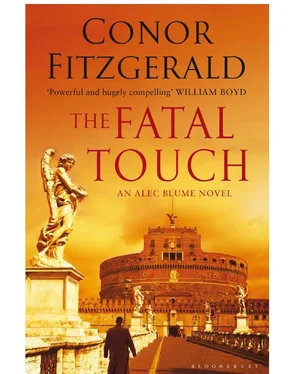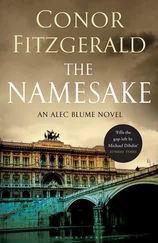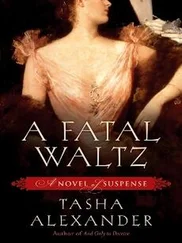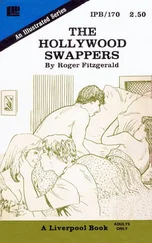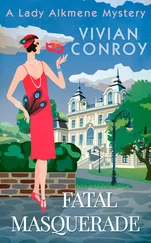Conor Fitzgerald - Fatal Touch
Здесь есть возможность читать онлайн «Conor Fitzgerald - Fatal Touch» весь текст электронной книги совершенно бесплатно (целиком полную версию без сокращений). В некоторых случаях можно слушать аудио, скачать через торрент в формате fb2 и присутствует краткое содержание. Жанр: Полицейский детектив, на английском языке. Описание произведения, (предисловие) а так же отзывы посетителей доступны на портале библиотеки ЛибКат.
- Название:Fatal Touch
- Автор:
- Жанр:
- Год:неизвестен
- ISBN:нет данных
- Рейтинг книги:3 / 5. Голосов: 1
-
Избранное:Добавить в избранное
- Отзывы:
-
Ваша оценка:
- 60
- 1
- 2
- 3
- 4
- 5
Fatal Touch: краткое содержание, описание и аннотация
Предлагаем к чтению аннотацию, описание, краткое содержание или предисловие (зависит от того, что написал сам автор книги «Fatal Touch»). Если вы не нашли необходимую информацию о книге — напишите в комментариях, мы постараемся отыскать её.
Fatal Touch — читать онлайн бесплатно полную книгу (весь текст) целиком
Ниже представлен текст книги, разбитый по страницам. Система сохранения места последней прочитанной страницы, позволяет с удобством читать онлайн бесплатно книгу «Fatal Touch», без необходимости каждый раз заново искать на чём Вы остановились. Поставьте закладку, и сможете в любой момент перейти на страницу, на которой закончили чтение.
Интервал:
Закладка:
“After my expulsion from Clongowes, they sent me to the Presentation Brothers in Bray, but I got kicked out of that, too, this time for setting fire to an outhouse. No one saw me, but I was stupid enough to turn up to my next lesson reeking of paraffin and smoke, and was sent to the headmaster’s office, from whose window the smoldering heap across the field was still visible. A red fire engine stood in the middle of the field, one fireman dribbling his hose on the black patch of ground, a second fireman watching. The headmaster waved his arm at the window, and declared,
See you yon dreary plain, forlorn and wild,
The seat of desolation, void of light,
Save what the glimmering of these livid flames
Casts pale and dreadful?
“Then he burst out laughing, and took some time to get himself under control. As he dabbed his watering eyes with the back of his hand, I figured it was probably going to be all right after all if he found it so funny, but then he said, ‘I’ve phoned your house, and nobody is in, so I’m afraid it is up to you to tell them you have been expelled. We are also considering prosecution, and shall certainly be seeking damages. That is all.’
“I ended up in Ballybrack Technical College, and, in between the metalwork, remedial English, and getting beaten up, finally learned something useful: basic carpentry. But after less than a year, I had left that school, too. This time I was not expelled, I merely wandered off and no one seemed to notice.
“One morning, I was sitting on the number 45 bus on my way to Bray when a group of kids, three boys and a girl, in front of me started slashing the rubbery blue seats with penknives. One of them turned around to see if I wanted to make something of it, then nudged his companion. Here comes trouble, I thought. Then the girl turned around and said, ‘Henry!’ And I looked at her for a while, then finally said, disappointed but also kind of awed, ‘Monica!’
“She was going through her anti-authority phase. Cut adrift and allowed to do her own thing. I was the perfect companion.
“In the summer of 1966, a woman called Mrs. Heath, who was connected in some vague way with someone who knew my stepfather, allowed me to use an empty mews in her garden. The deal was that I would do odd jobs, like washing the forty-two windows of her house (each of which had four panes and, of course, two sides, so it was no small task), weed the garden, clean some of the slime from around the pond, cut the grass, run errands. In exchange, I got to live in an empty stone mews without electricity. But it had running water, a bathroom, a permanently damp bed, some black oak furniture, and was effectively my first apartment. It was an unheard-of freedom that rendered me attractive to Monica.
“For a West Brit, Mrs. Heath was a good woman. She encouraged me to paint, and paid for the supplies. When I did something, she would ‘air’ it in the house, since the mews was too damp. I thought she was ancient, but she was probably only in her thirties. After a few months she trusted me enough not to follow me around the house as I cleaned the windows or carried mahogany chairs and tables from one room to another, for she was always rearranging her life, ready to start afresh.
“One morning, Monica and I found ourselves alone in the drawing room. Mrs. Heath was away for a few hours and had asked me to dust the room. As I was lifting silverware and china trinkets from the mantelpiece, Monica said, ‘We should steal something.’
“I turned around to see if she was serious.
“ ‘Something really valuable. To make it worthwhile. Something that we could sell and then use the money to go somewhere.’
“Her suggestion was to go to London, a city where everything was happening. I was attracted by the idea, too, but did not want to steal from Mrs. Heath. But I knew Monica would be disappointed if I made bourgeois moral objections to her idea, so I pointed out the practical difficulties of getting a flat, putting down a deposit, finding a job. Since she still lived with her parents and I was the one with the independent life, she deferred to me on these points. But the result was to set Monica thinking along more ambitious lines.
“One day when Mrs. Heath had left us alone in her house while she went out to pick some apples, Monica pointed at a large oil painting over the mantelpiece of redcoat soldiers, rearing horses, and an elephant. ‘What’s that painting?’ she asked.
“ ‘Just because it’s the biggest doesn’t mean it’s the best or the most valuable in the room,’ I declared, trying to sound more authoritative than I felt in an effort to deflect the conversation from where I knew Monica was going to take it.
“ ‘You don’t know who it’s by,’ said Monica (it was a Francis Hayman but she was right: I did not know that then). ‘What about that one over there, the one with the two sad dogs? I like that one.’
“ ‘That’s not good art,’ I said importantly. ‘It’s by a man called Landseer. Actually, it’s lousy.’
“ ‘Is it now?’ said Monica. ‘It looks grand to me. But if it’s so terrible, you could do one just as good, couldn’t you?’ She pointed to another frame. ‘Look, there are two wee cartoons even I could copy. All them squiggly lines, little men dressed in black.’
“ ‘That’s Jack Yeats. I could do him all right.’
“She smiled at me. ‘Well, we have to start somewhere. How much would that sketch there of your man carrying the turf get us?’
“ ‘I don’t know. About twenty-five quid?’
“ ‘At that rate the big one with the dogs must be worth a thousand. D’ you think her ladyship’d miss her Yeats if we just took it off the wall?’
“I was thinking that if I did a quick copy it might stand in for a day or two without anyone noticing while I copied the original. A plan formed in my mind and I explained it to her, but she found it too elaborate.
“ ‘All that for just twenty-five quid.’
“ ‘That’s a decent amount of money. It would pay the deposit on a flat in London, if that’s where we’re going,’ I said.”
Blume suddenly remembered something, and stopped reading. “There’s a half blank page here, more crossings-out, and this is not strictly relevant.”
Caterina did not say anything until she had finished writing out her last note. Her arm ached and her wrist had seized up like a lobster’s claw, but she wanted to go on.
“Does he copy the painting?” she asked.
“Knowing how he spent the rest of his days, I’d say he does. Otherwise, why would he be telling this?”
“Maybe he wanted to talk about Monica. Let me see.” She leaned in to look at the notebook. “I don’t know how you can read his handwriting so fluently. I’m going to be much slower.”
“He uses abbreviations and plus signs for ‘and,’ and he’s not a great speller,” said Blume. “Well, you have the photocopies. Don’t tell anyone you have them, OK? Read ahead if you want, but maybe skip the early years.”
“I think this works, you reading and me taking notes,” said Caterina. “You could stay for dinner and we could continue after. Just to finish this first section this evening.”
Blume closed the notebook and stood up. “That’s very kind. But I’ve just remembered I have a dinner appointment. It takes me at least half an hour to get home from here, so…”
Caterina picked up her notes and held them against her chest. “Oh, well, that’s not a problem.”
“It’s just more work, really.”
“I don’t mind. I’ll continue reading by myself after you’ve gone.”
“I mean this dinner. It’s work-related.”
“Oh, right. Well, so is this,” said Caterina.
“Yes. Everything’s just work,” said Blume.
Читать дальшеИнтервал:
Закладка:
Похожие книги на «Fatal Touch»
Представляем Вашему вниманию похожие книги на «Fatal Touch» списком для выбора. Мы отобрали схожую по названию и смыслу литературу в надежде предоставить читателям больше вариантов отыскать новые, интересные, ещё непрочитанные произведения.
Обсуждение, отзывы о книге «Fatal Touch» и просто собственные мнения читателей. Оставьте ваши комментарии, напишите, что Вы думаете о произведении, его смысле или главных героях. Укажите что конкретно понравилось, а что нет, и почему Вы так считаете.
